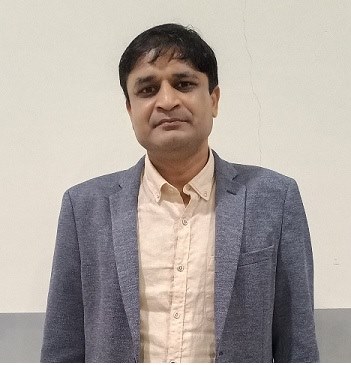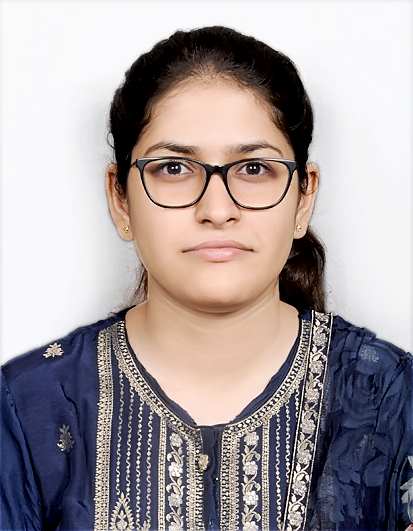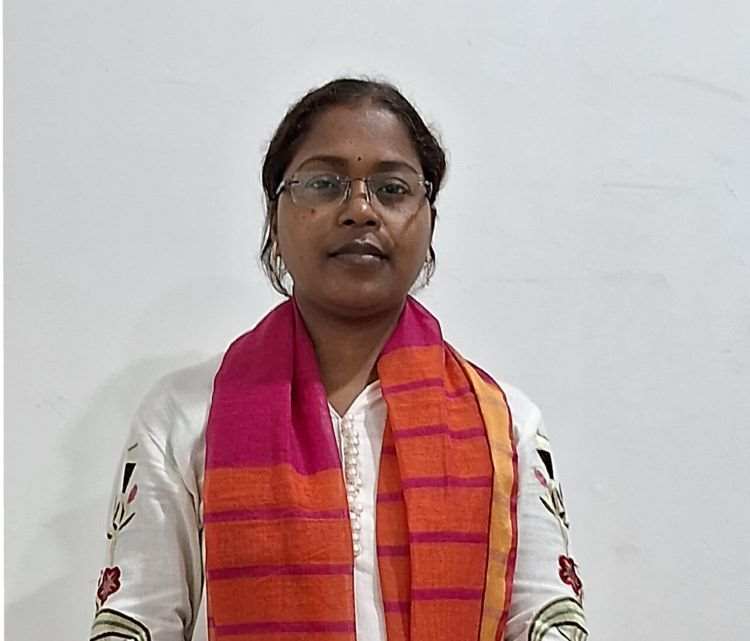University Teaching Department
Home
Vision: To create ethically sound engineers to make leaders in the industry and academia nationally and internationally so that they may meet the demands of nation and society in the area of Computer Sciences while being the epitome of research and innovation in Data Science and Artificial Intelligence.
Mission and Goals: To offer world-class undergraduate and post-graduate education, research guidance, professional consultancy, outreach and manpower training as well as leadership in Computer Science Engineering.
I) B. Tech (Honours) Programme Details:
- University is commencing B.Tech (Honours) from 2020-21. The nomenclature of the degree are as follows:-
- B.Tech (Honours) in Computer Science Engineering (Artificial Intelligence) – 90 Seats
- B.Tech (Honours) in Computer Science Engineering (Data Science) – 90 Seats
- B. Tech (Honours) in Civil Engineering – 60 Seats
- The students opting for B.Tech. (Honours) program will have to earn 12 extra credits during the
-
The list of such additional courses offered by the related Faculty will be announced in the beginning of the academic year to facilitate the registration process.
II) Admission Details:
- The total intake is 90 each, i.e 90 for B.Tech (Honours) in Computer Science Engineering (Artificial Intelligence) and 90 for B.Tech (Honours) in Computer Science Engineering (Data Science).
- Admission for 50 percent seats of four year degree course B.Tech (Honours) will be done through Central Seat Allocation Board (CSAB) / Joint Seat Allocation Authority (JoSAA) co-ordinating admission of Joint Entrance Examination (Main) (or other similar bodies as the case may be) and admission for remaining 50 percent seats will be done through Directorate of Technical Education coordinating admission of CGPET.
- The vacant seats after CSAB/JoSAA and CGDTE counseling will be filled by University Counseling.
III).Fee Structure:
(1st Semester)
|
S.No |
Description |
Amount |
|
1 |
Tuition Fee |
45000.00 |
|
2 |
Development Fee |
2000.00 |
|
3 |
Training and Placement |
700.00 |
|
4 |
Laboratory Fee |
2000.00 |
|
5 |
Sport Fee |
500.00 |
|
6 |
Library fee |
500.00 |
|
7 |
Caution Money |
3000.00 |
|
8 |
Identity Card |
300.00 |
|
9 |
Admission Fee |
500.00 |
|
Total |
54500.00 |
(2nd Semester)
|
S.No |
Description |
Amount |
|
1 |
Tuition Fee |
45000.00 |
|
2 |
Development Fee |
2000.00 |
|
3 |
Training and Placement |
700.00 |
|
4 |
Laboratory Fee |
2000.00 |
|
5 |
Sport Fee |
500.00 |
|
6 |
Library fee |
500.00 |
|
Total |
50700.00 |
Note: From 2nd semester to 8th semester fee will be same.
IV). Key Features:
- Real Life Industry Projects
- Personalised Mentorship & Double-Solving Support
- Specialisation Certificates
- Making Student Industry Ready
- Complimentary Python Programming Bootcamp
- One-on-One with Industry Mentors
- Career Essential Soft Skills Program
- Job Assistance with Top Firms
V).Proposed Scheme for B Tech Honours (Self Finance Course) First Semester
| S.No | Title of courses | L-T-P | Credits |
| 1 | Foundations of Electronics Engineering | 3-0-2 | 4 |
| 2 | Engineering Mathematics-I | 3-0-0 | 3 |
| 3 | Learning Programming Concept with C | 3-0-2 | 4 |
| 4 | Fundamentals of Computational Biology | 3-0-0 | 3 |
| 5 | Language & Writing Skills | 2-0-0 | 2 |
| 6 | Innovation | 1-0-0 | 1 |
| 7 | Professional Ethics and Life Skills | 2-0-0 | 2 |
| 8 | Environmental Science | 2-0-0 | 2 |
| Total Credit | 21 |
Proposed Scheme for B Tech Honours (Self Finance Course) Second Semester
| S.No | Title of courses | L-T-P | Credits |
| 1 | Engineering Mathematics-II | 3-0-0 | 3 |
| 2 | Data Structure Using C | 3-0-2 | 4 |
| 3 | Object Oriented Programming | 3-0-2 | 4 |
| 4 | Digital Logic & Design | 3-0-2 | 4 |
| 5 | Python for Data Science | 2-0-2 | 4 |
| 6 | Entrepreneurship | 2-0-0 | 2 |
| Total Credit | 21 |
VI).Laboratory:
SIMULATION / MODELLING / SOFTWARE PROJECT MANAGEMENT / STORAGE TECHNOLOGY FOUNDATION LABORATORY
Course provides the capability to analyze simulation experiments results and understand and identify major application areas for simulation.Course emphasizes on the entrepreneur to access various dimensions linked to a naive project, which would reduce the chances of the failure of software projects.Course will introduce creation of RAID groups, snapshots, clones and mirrors in the NAVISPHERE simulator.
VII).Programme Outcomes:
- Engineering knowledge : Apply the knowledge of mathematics, science, engineering fundamentals, and an engineering specialization to the solution of complex engineering problems.
- Problem analysis : Identify, formulate, research literature, and analyze complex engineering problems reaching substantiated conclusions using first principles of mathematics, natural sciences, and engineering sciences.
- Design/development of solutions : Design solutions for complex engineering problems and design system components or processes that meet the specified needs with appropriate consideration for the public health and safety, and the cultural, societal, and environmental considerations.
- Conduct investigations of complex problems : Use research-based knowledge and research methods including design of experiments, analysis and interpretation of data, and synthesis of the information to provide valid conclusions.
- Modern tool usage : Create, select, and apply appropriate techniques, resources, and modern engineering and IT tools including prediction and modeling to complex engineering activities with an understanding of the limitations
- The engineer and society : Apply reasoning informed by the contextual knowledge to assess societal, health, safety, legal and cultural issues and the consequent responsibilities relevant to the professional engineering practice.
- Environment and sustainability : Understand the impact of the professional engineering solutions in societal and environmental contexts, and demonstrate the knowledge of, and need for sustainable development.
- Ethics : Apply ethical principles and commit to professional ethics and responsibilities and norms of the engineering practice.
- Individual and team work : Function effectively as an individual, and as a member or leader in diverse teams, and in multidisciplinary settings.
- Communication : Communicate effectively on complex engineering activities with the engineering community and with society at large, such as, being able to comprehend and write effective reports and design documentation, make effective presentations, and give and receive clear instructions.
- Life-long learning : Recognize the need for, and have the preparation and ability to engage in independent and life-long learning in the broadest context of technological change.
- Competitive Skills : Ability to compete in national and international technical events and building the competitive spirit.
VIII) Salient Features of Programme:
- Contemporary Curriculum: Instill knowledge in the major areas of Computer Science and Engineering such as Artificial Intelligence, Networking, Data bases, Data Analytics, Web Development and Cloud Computing.
- Professional Enhancement: In addition to core curricula, course offers subjects like communication, analytical and soft skills to enhance personality and employability.
- Industry Immersion : Trainings, projects and guest lectures collaborated with industries help to learn from real life situations.
- Projects : Seminar and Project driven courses are designed to enhance technical and presentation skills
Industrial Visits : Encourage students to have maximum industrial exposure through visits for problem identification and emerging technologies. - Interdisciplinary Minors: Minor elective gives the students a choice to develop expertise in the interdisciplinary areas of interest for example Management and ECE.
- Software Skills: Curriculum is equipped with 21st century digital technologies for web designing, networking, mobile phone app development, data analytics, and data bases.
- Industrial Certifications : Curriculum of the course is competent to impart skills as benchmarked by Wipro Talent++, Infosys Campus Connect, HCL K2 with option to undergo Industrial Certifications and Online Courses.
Industrial Input : Curriculum of the course is competent to impart skills as per feedback provided by premier organizations of industry and academia. - Innovative Pedagogy : Usage of demo kits in addition to animations, simulations, audio-visual aids, demonstrations provide interactive teaching methodology.
- Holistic Development : Participation in technical events, sports and cultural activities help in the holistic development of students.
IX).Gallery













